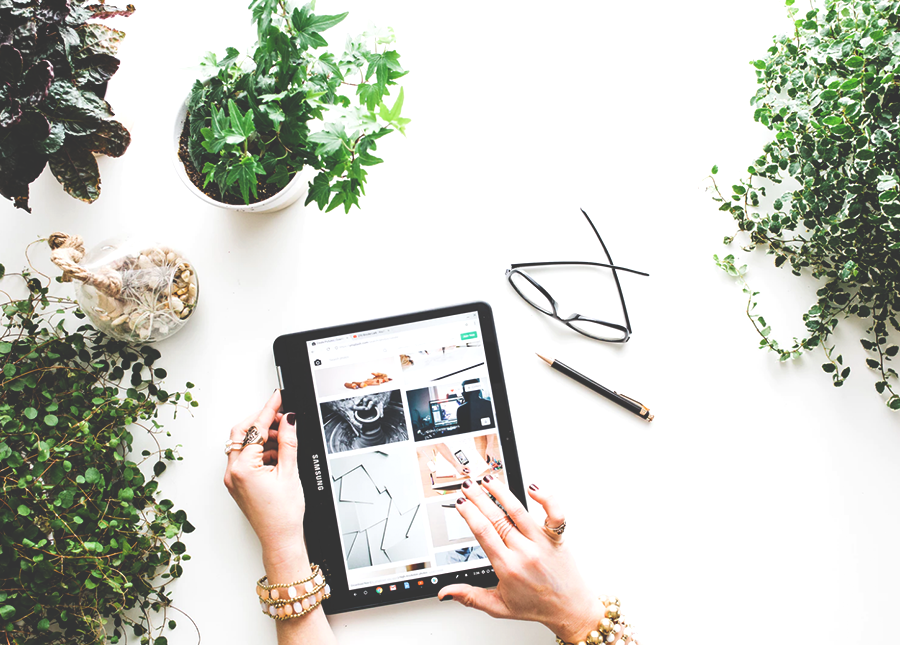The 100-Thing Challenge That Helped Me Overhaul My Financial Life

At TFD, we’re big proponents of the closet (and home) cleanse. It’s a great way to assess what you actually own, and help you be more mindful of how you’re spending money going forward. There’s nothing wrong with owning things, but an overly cluttered home is a financial no-no for many reasons — you may end up purchase multiples of items you’ve forgotten you already own, clothes end up hidden and forgotten, and frankly, the more we buy, the more we think we need to buy. Plus, too much clutter means your home is less fun to spend time in. This “100 Thing Challenge” from Grow may be a bit extreme, but this spring cleaning season, it’s definitely caught our attention. Read on for more inspiration!
This is the story of Cary Fortin, a 34-year-old co-founder of a declutter and design company in Boise, Idaho.
In 2010, I was a worn-out paralegal, feeling uninspired and trapped in the corporate grind. But with meager savings, I didn’t have enough to quit.
Itching to get out, I created my first-ever budget. Fortunately, I didn’t have debt, but I wasn’t using my income wisely, either. Impulse buys were the norm: I had no problem spending $250 on the latest device or $300 on a handbag. Seeing it all in black and white highlighted how out of whack my priorities were. The kicker was that most of what I bought didn’t bring me joy.
That’s when I decided to start saving at least half my paycheck, so I could leave my job and reevaluate what I wanted out of life. This required a lot of discipline. Aside from a rare dinner out, I only purchased necessities and saved the rest. (I also earned extra cash selling clothes on eBay.)
You’d think I would’ve felt miserable and deprived, but the opposite was true. I felt lighter and clearer.
I ended up quitting my job with $10,000 saved, and took on odd jobs — from working the fields at a local vineyard to teaching Pilates — to cover my expenses. I wasn’t making much, but it was enough to pay my bills and eventually start my own decluttering and design business in 2012.
Around that time, I came across a book called “The 100 Thing Challenge” about one man’s life-changing experience of whittling down his belongings to just 100 things—and was inspired to give it a whirl. The emotional benefits were appealing, plus I liked the idea of decreasing my expenses even more.
Getting to 100
I began with about 300 personal items. I didn’t include stuff like kitchenware and furniture, but journals, clothes, and knickknacks were fair game. I was married by then, so my husband’s stuff was off limits, too. (He was supportive, but not as enthusiastic about minimalism as me.)
I easily purged the first 100 things — old work notebooks, bridesmaid dresses and shoes were easy to toss — but then it got harder. Even though I scanned old photos, parting with my albums was especially tough. It also felt wasteful getting rid of well-made clothing I’d invested time in purchasing, even though I didn’t need them. Ultimately, I ended up with 107 items. And I was okay with that. The whole idea was simply to free myself of anything that doesn’t enrich my life, which is a value I still embrace.
But perhaps the most surprising outcome was how the exercise transformed my finances — and not just because I banked a few thousand dollars from selling my castoffs.
The Big Payoff
The experience completely changed the way I spend. When you exert that much energy decluttering and unloading, you become much more mindful about what new things you’re willing to bring into your life. Random sale items don’t tempt me anymore. Now I only shop when I know exactly what I need. And as my business grew over the years, I gradually started earning more, too. Put those things together, and you can really supercharge your financial goals.
My husband and I went on to save a 30-percent down payment for our house, pay off our car early, build a healthy investment portfolio and top off a six-month emergency fund — all goals, I realized, that were much more significant than the fleeting rush I used to get from shopping. Simple living means having more money for what matters to you most. That’s financial freedom in my book.
Read the original article on Grow. Copyright 2018. Follow Grow on Twitter.
More from Grow:
Image via Unsplash




